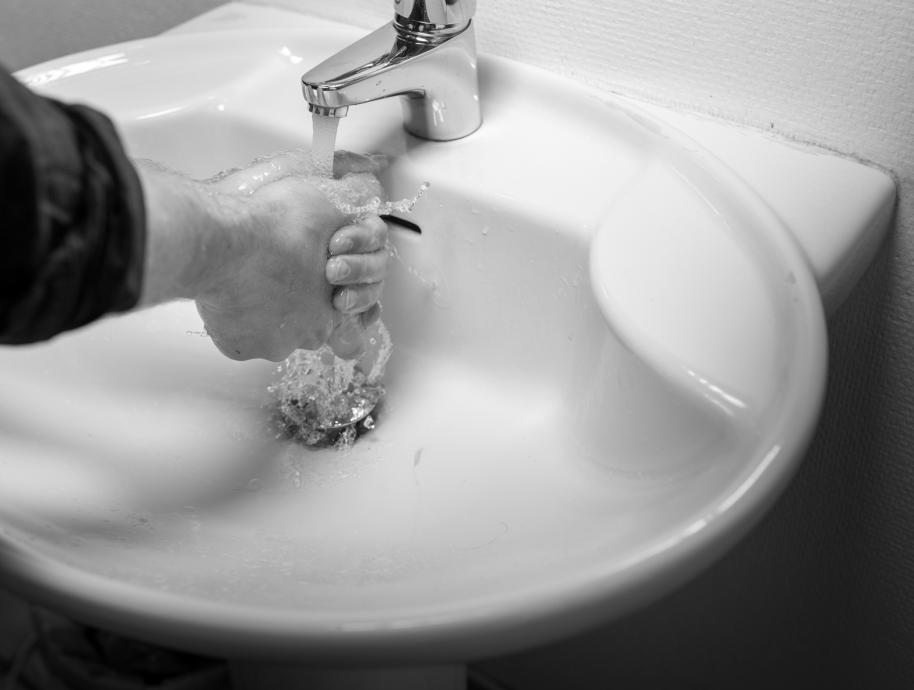
Infection control
General about infection
Infections are transferred between people via fluids, food or insects – learn how to prevent infection
Proper hand hygiene reduces the risk of infection and infectious diseases. You should not share personal hygiene products or used towels with others. Cover up any open wounds.
Make sure that you are vaccinated against infectious diseases in accordance with recommendations from the health authorities.
Check travel advice and your own vaccination status well in advance if you are going abroad.
Coronavirus
- Coronavirus disease - advice and information (Norwegian Institute of Public Health)
Influenza and respiratory infections
Preventive habits:
- Stay home if you are sick or unwell
- Wash your hands often and thoroughly
- An alcohol-based hand sanitizer is a good alternative when soap and water are not available, for example during travel
- Protect others by holding a paper tissue in front of your mouth when you cough or sneeze. An alternative is to cough or sneeze into your hands and wash them immediately afterwards
- Cough or sneeze into the crook of your elbow if you do not have a paper tissue or the possibility of washing your hands
- See a doctor when necessary
Norovirus (stomach bug)
Washing your hands thoroughly with soap and water prevents infection. A hand sanitiser is of little use against norovirus. Avoid preparing food for others.
Puncture wounds, bites or cuts and biological material
Familiarise yourself with procedures for handling puncture wounds and blood-borne infections where this may entail risk (labs etc.). If you prick or cut yourself on a used syringe or sharp object contaminated with biological material, contact a doctor for advice and follow-up. Report it as an undesirable incident (deviation) at your institutions. Animals can transmit infections to humans, eg. through bites and scratches. It is also not uncommon to implant cells and other biological materials in animals, which can also potentially pose a risk of infection.
Sexually transmitted diseases
Use a contraceptive (condom) to prevent the spread of sexually transmitted diseases (STDs). GPs, health centres, local outpatient clinics and student health services offer free tests and treatment for STDs.
Resistant bacteria
Antibiotic-resistant bacteria constitute a serious problem that is increasing all over the world. Testing for MRSA (Methicillin-resistant Staphylococcus Aureus) is mandatory if you have been hospitalised abroad and are to be admitted to a Norwegian hospital, or if you are to work at a health institution when you return to Norway. The test is conducted by your GP. Guest researchers / exchange students from abroad who is going to work in Norwegian health institutions should also be tested for MRSA before the work starts.

 To install this app on your home screen: Press
To install this app on your home screen: Press